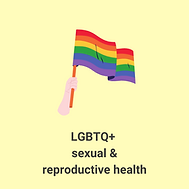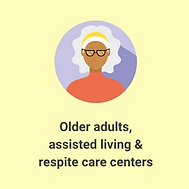
Our Mission
As Certified Health Education Specialists, we provide consulting services aimed at health learning and promotion. We work with local programs and organizations to help them them foster health education through a range of services, including needs assessment, program planning/development, health behavior change, program implementation, research and evaluation.
Our Services
Needs Assessment
Needs assessment is a process for determining a community or organization’s needs. As the crucial first step in the strategic process, this assessment identifies any unmet needs that could act as barriers to a project's success. We take a holistic look across different dimensions of health including social, emotional, physical, and structural. The final deliverable includes a report of recommendations to elevate strengths and address needs (think insights-driven SWOT analysis).
Evaluation and Research
In order to provide tailored communications and health initiatives, we must first understand our audience. By pulling insights from secondary research as well as primary interviews, we will be able to better understand what motivates our target audience and what barriers to change they may face. We are trained to perform social listening analyses, lexicon audits, motivational interviewing, as well as planning and evaluating qualitative questionnaires. This allows us to make sure we serve the right information at the right time to drive health behavior change.
Program Planning and Implementation
Program planning utilizes insights from research and needs assessments in order to modify or develop programs or initiatives. Effective program planning and evaluation ensures that your program is meeting its objectives and having an impact on the health of the population. A logic model or behavior change framework can be used to help facilitate this process.
Health Promotion and Advocacy
In certain cases, an organization may have to engage coalitions and stakeholders in addressing the health issue and planning advocacy efforts. We first identify factors that influence decision-makers (e.g., societal and cultural norms, financial considerations, upcoming elections). Next, we can create formal or informal alliances, task forces, and coalitions to address the proposed change. Then, we are able to educate stakeholders on the health issue or proposed policy, system, or environmental change by developing persuasive messages and materials (e.g., briefs, fact sheets) to communicate our goals. In addition to maintaining an ongoing relationship with stakeholders, we are also trained to use social media in order to engage in lasting advocacy.
What are some of our industries of expertise?






